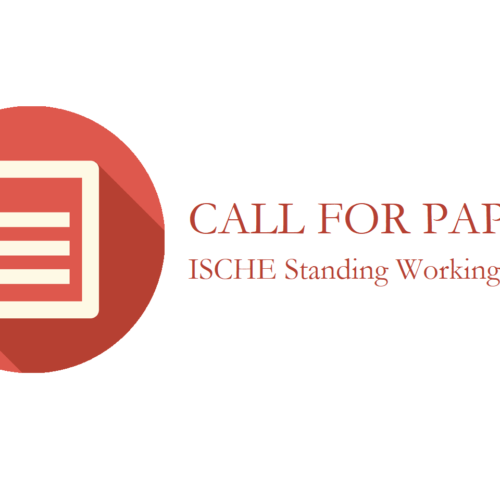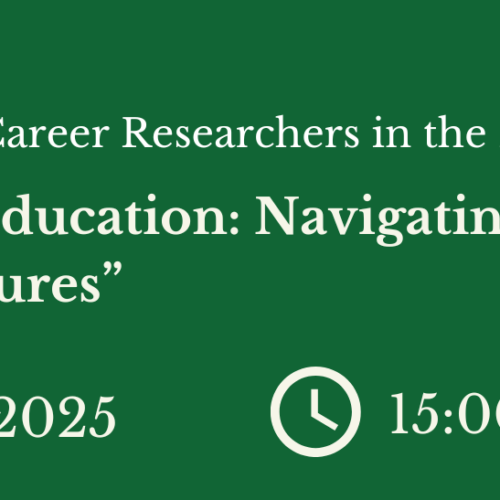Call for Contributions – ISCHE 2020 Pre-Conference Workshop: Creating, Using and Publishing Research Data and digital Collections in the History of Education
Creating, Using and Publishing Research Data and digital Collections in the History of Education
Increasing digitalisation is bringing a process of change and new challenges to researchers and research methods. Research projects are particularly confronted with the question of how they should deal with their digital material during and after their respective research. This applies first and foremost to projects working with digital humanities methods, but is by no means limited to them. The digital work process means that essential phases of research take place in the digital realm and that, accordingly, partial products are created in the form of digital data. These may be carefully compiled research corpora, bibliographies, extensive transcriptions or large data sets derived from multiple sources. They form the basis of the respective research and it is necessary to document them carefully. In pre-digital times the publication of an annotation apparatus, sources and bibliographies and, if appropriate, own source volumes might have been sufficiently substantiated the research results, nowadays it is necessary – especially in the case of large, possibly self-generated, data sets or dynamic applications – to precisely prove and document the origin of the data and their transformation. The great heterogeneity of the sources, literature and data basis, which is characteristic of historical research, poses a particular challenge in this context.
Digital research data and their use in the history of education are the focus of the Pre-Conference Workshop. For the workshop, we are requesting project-related or practice-oriented contributions from educational historians and institutions, such as museums, libraries and archives, on the following topics:
a) Creation and provision of digital collections or data bases – the origin of which can be either “research driven” or “curation driven” (e.g. digital editions, inventory database, repositories with computer interfaces, …)
b) Research with digital data in the history of education and production or provision of research data by museums, archives, libraries or their cooperation (e.g. work with or support of work with research data (e.g. TEI/XML, application of automatic text or image analysis, integration of geo-coordinates, …).
c) Ways and benefits of publishing research data, obstacles and opportunities for academic recognition (e.g. Zenodo, project website, Researchgate, data journal)
On the basis of scientific practice we want to take time to discuss the following questions:
What are the methodological and epistemological implications of the new working methods? Are there any general prerequisites for the subsequent use of the data to be possible at all? Is the simultaneous use of digital and physical sources an obstacle for data publications? Can the digital publication of source corpora and research data serve as academic credentials? Under what conditions can the FAIR Principles (FAIR Principles aim to make Research Data Findable, Accessible, Interoperable and Reusable. For details see: https://www.go-fair.org/fair-principles/) be implemented in the data workflow of educational history for all phases of the data lifecycle? How can researchers be sensitized to the possibility of making their data available for re-use?
The workshop will be organized in three blocks with short presentations to give enough space for discussion. Please concentrate your presentation on the main issues. You will have about 10 minutes. More detailed information can be part of a paper (5 to 6 pages) which you are asked to hand in beforehand. Every participant of the workshop will get the papers as a handout before the workshop. After the workshop the revised papers will be published digitally on the Open Access Repository peDOCS (https://www.pedocs.de.)
Submissions
The proposals have to be written in English and shouldn’t exceed 750 words (bibliography not included). They have to contain contact information about the authors (Name, Affiliation) with the corresponding author marked. Please indicate whether the proposal is connected to section a), b), or c).
Submit proposals to: Stefanie Kollmann (mail: kollmann@dipf.de)
Important Dates:
27 March: Deadline for submission of proposals
6 April: Communication of acceptance of proposals
15 April: Publication of programme
1 July: Deadline for submission of short paper (camera ready)
18 August: ISCHE 2020 – Pre-Conference Workshop
30 October: Deadline for submission of revised papers for the digital publication (camera ready)
1 December: Publication of the papers
Workshop Organization
Lars Müller, Stefanie Kollmann, Sabine Reh
BBF | Research Library for the History of Education
at DIPF | Leibniz Institute for Research and Information in Education
Warschauer Straße 34 – 38
D-10243 Berlin
Contact: Stefanie Kollmann | mail: kollmann@dipf.de | phone: +49(0)30.293360-37…
About author
You might also like
CfP – ISCHE 45 Natal, Brazil – (De)Coloniality and Diversity in the Histories of Education
ISCHE, the Universidade Federal do Rio Grande do Norte, the Instituto Federal do Rio Grande do Norte, and the Brazilian Society of the History of Education would like to invite
Migrants, migration and education SWG invites submissions for ISCHE 39 conference. Deadline: Jan. 31, 2017
Migrants, Migration and Education Convenors: Kevin Myers, Helen Proctor and Paul Ramsey This SWG aims to consider, debate and discuss how migrants, and migration, can be written into the
PhD scholarship at the KU Leuven Center for the History of Education
PhD scholarship at the KU Leuven Center for the History of Education on a project Attention, please! Conceptualizations of attention and the psychologization of education, 1842-1980 for the moment. More



